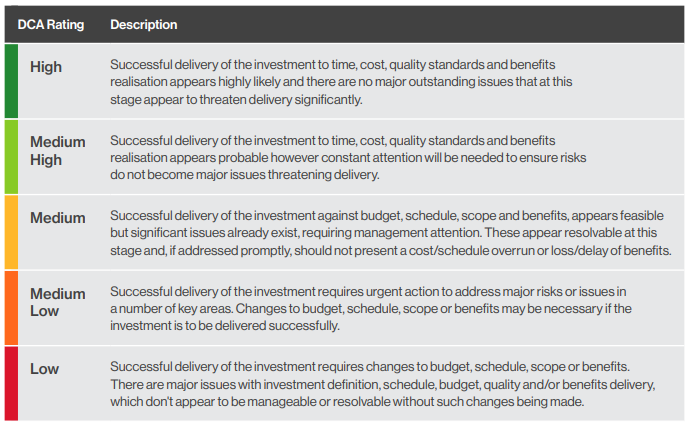In order to enhance the customer experience (CX) and optimise your digital experience platform (DXP), it is critical that digital projects and transformation programs are successfully delivered. A successful project aligns to the organisation's strategy, is on time, on budget and on scope.
The recently published guidance on Delivery Confidence Assessments (DCA) from the Digital Transformation Agency (DTA) and the John Grill Institute highlights a structured approach to improving the consistency of DCAs, offering best practices to agencies and assurance providers.
This plays a critical role in digital transformation projects, especially for those with high-stakes websites, mobile apps and marketing technology programs that focus on CX and DXP improvements.
How Delivery Confidence Impacts CX and DXP
For projects aimed at improving CX or building robust DXPs, ensuring delivery confidence can directly influence the outcomes. Delivery Confidence Assessment ratings provide insights into whether projects are on track regarding scope, budget, and timelines, ultimately reducing risks that can derail these projects.

The Delivery Confidence Assessment (DCA) ratings table.
Digital projects often involve complex stakeholder ecosystems, integration challenges, and evolving technologies. By incorporating assurance activities, organisations can identify potential issues early on, foster better stakeholder engagement, and keep project trajectories aligned with strategic goals.
For example, in CX projects, clear communication and continuous feedback loops between teams and stakeholders are crucial for developing solutions that resonate with end-users. Ensuring proper governance, risk management, and leadership engagement throughout the project ensures alignment with the business’s needs and enhances the final product’s quality.
Practical Steps to Improve Delivery Confidence
- Build Strong Governance
Projects with solid leadership and clear governance structures are more likely to succeed. Ensure your executive team is actively engaged and aligned with the project’s objectives. - Iterative Deployment
Deploying digital projects iteratively allows for constant testing and feedback, building confidence in the solution and avoiding the risks of large-scale deployment failures. - Focus on Stakeholder Engagement
Early and continuous engagement with stakeholders helps in identifying risks, refining scope, and adjusting project plans to meet real-world needs. - Align CX and DXP Goals with Business Needs
Strong alignment between the business case, benefits realisation, and CX or DXP objectives will enhance delivery outcomes.
Why LuminateCX Helps Avoid Common Issues
One of the key pitfalls in digital transformation, particularly in customer experience (CX) and digital experience platform (DXP) projects, is the lack of upfront clarity around business goals, leading to scope creep, delays, and budget overruns.
We directly address this through our Audit and Baseline Requirements phases of the Evolve process. These phases involve deep workshops with stakeholders to gain a clear understanding of the business strategy, current technical infrastructure, and long-term goals. This ensures that the project is aligned from the start, avoiding the mismatches and miscommunications that often arise mid-project.
We audit existing systems, assess business requirements, and offer a tailored roadmap that avoids unplanned costs, inefficiencies, and poor user experiences. This type of proactive analysis is essential for digital projects that aim to transform customer experiences, ensuring that all stakeholders are aligned with the project’s purpose and delivery path.
Benefits of Working with LuminateCX:
- **Comprehensive Business Strategy Workshops
**These workshops ensure that both business leaders and technical teams have a clear understanding of the project's goals, reducing confusion and misalignment down the line. - **Detailed Roadmaps
**The final outcome of LuminateCX's process is a detailed roadmap that outlines the steps needed to meet your objectives, mitigating risks before they become critical issues. - **Independent, Unbiased Assessment
**LuminateCX provides independent advice free from vendor bias, ensuring the solutions proposed are driven by your specific business needs, rather than vendor limitations.
Moving Forward
For agencies and organisations embarking on CX and DXP initiatives, adopting the DCA framework is not just about managing risk but driving project success. Taking a proactive approach to governance, capability building, and stakeholder engagement will ensure your digital projects deliver on their promises and transform customer and digital experiences.